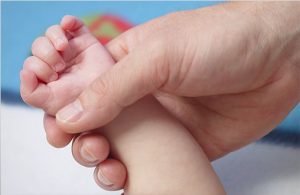Composting
Shannon King, Charity Director
Have you ever tried composting? Nature and science are my deep interests so I find composting to be amazingly satisfying. The concept that I can take yard and vegetable clippings and create earth fills me with a magical excitement. It makes me feel like an alchemist. Not only do I get my mad scientist fix, but my plants absolutely love the nutrient dense fertilizer.
Composting adds nutrition and organic material into the soil reducing the need for artificial fertilizers and improves the water retention of the soil. Composting happens when microbes and bacteria begin to break down the plant matter creating carbon dioxide and heat. As the temperature raises (brewing can raise the temperature to 100-140 degrees) heat loving microorganisms take over. Larger friends arrive, or can be added, such as worms, slugs, insects and begin to consume and digest the materials, pooping out pure compost as they munch their way through your compost pile. Their secretions improve the texture of your compost by binding small particles into larger crumbly bits.
To begin your composting adventure, you will need to select where your composting area will be. You can start a pile directly on the ground, or for a neater pile , fence in a 3 x 3 x 3 area. If you want something enclosed, you can use bins that close or a drum that will tumble. Tumbling will “stir” up your compost and improve aeration which helps the process move along faster.
Next, you need to know what to add as well as what NOT to add into your brew. When you select the right ingredients and have a well-balanced selection of materials you will have aerobic conditions, your microbes will thrive and your compost pile will never stink. It will have a deep earthy smell to it. Your brew should be a mix of brown and green waste. Items good for your compost include plant material such as leaves, saw dust, fireplace ash from a wood fire, grass clippings or house plants. Avoid larger things that will require a lot more time to decompose like wood or sticks. Paper items like shredded newspaper, napkins, paper towel and egg cartons can also go in. Food items like fruit and vegetable scraps, tea bags, nut shells and egg shells are good. Hair and fur can also get tossed in.
Please avoid the following items in your brew as you will attract larger animals like skunks or begin to grow unhealthy bacteria. Avoid coal or charcoal, dairy products and eggs, meat, fish, bones, pet feces or cat litter. Also avoid adding anything that is diseased or chemically treated.
Now the magic begins. You don’t need to do much at all. During the hot months you will need to use a shovel or pitch fork to turn over your pile about once a week. In winter you can turn it over once every few weeks. A tumbler is much easier as you can simply give it a few spins. Remember that your compost pile is very much alive so you may need to spray it with water every so often to avoid it drying out. Your compost should feel like a wrung out sponge, not wet but also not dry.
Your composting will only take a few weeks. Your scraps will turn into a dark soil-like matter. The composting is complete when it has a musty yet earthy smell and you can’t recognize anything that you threw in there. Now gift your houseplants, garden, or lawn with a top off of this super nutrient rich fertilizer! Isn’t the magical wonder of nature amazing?
For more information in composting, visit the Brooklyn Botanical Garden’s Guide to Composting at https://www.bbg.org/gardening/composting?gclid=Cj0KEQjwy4zLBRCOg6-4h6vs3cUBEiQAN-yzfu_pUTRoU3an1-Bilkji6DlzqpbuJAc10Bj9mp8OmooaAlZI8P8HAQ


